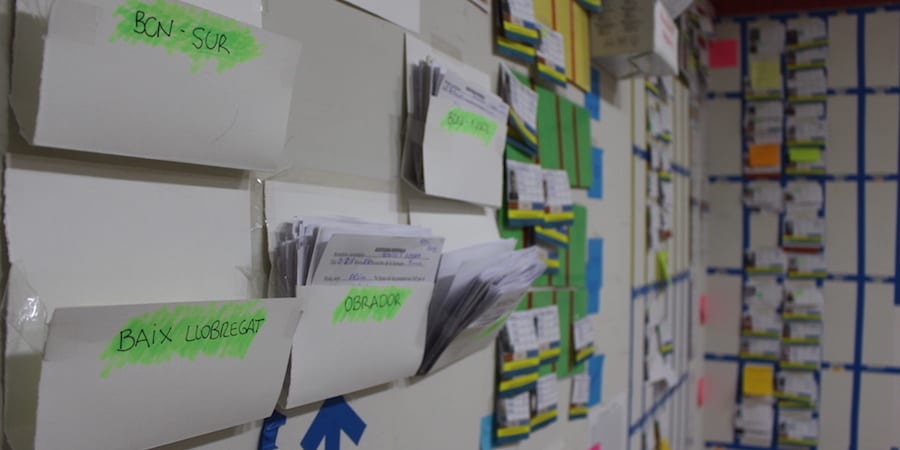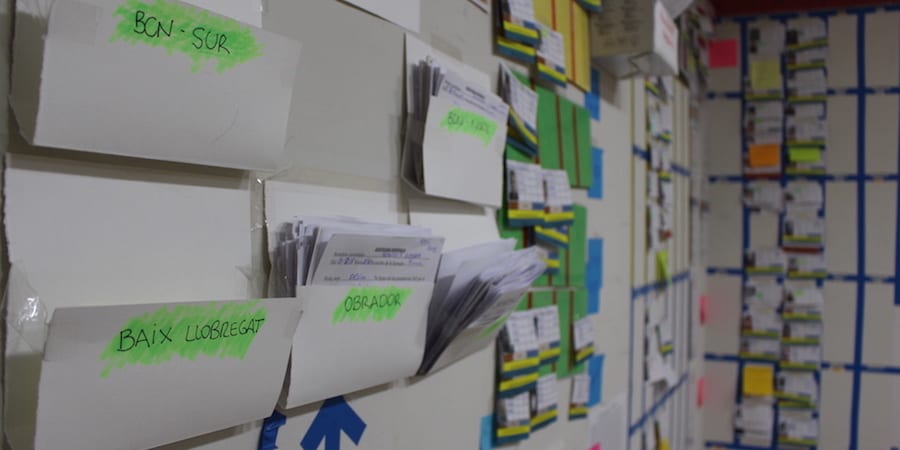
The Nordstrom model to teach coaching skills to leaders
INTERVIEW – We learn about Nordstrom's approach to encourage IT leaders to embrace lean coaching and truly support the firm's lean transformation.
Interviewee: Amy Evans, former Senior Manager at Nordstrom (now Director of Enterprise Project Management Office at The Everett Clinic)
Planet Lean: At the upcoming Lean IT Summit in Paris, you are going to talk about the IT Leadership Coaching Model that you and your team developed at Nordstrom – what were you hoping it to achieve when you set out to create it?
Amy Evans: We were trying to help leaders to assume a more supportive role for team members in the organization. We recognized – and that’s true in IT as much as anywhere else – that as we leaders advance in our careers, we tend to become the people who solve problems. What we wanted, instead, was for leaders to more deeply understand that it is also part of their job to turn those they support into the next generation of leaders. That means coaching people into becoming problem solvers of their own, rather than fixing everything for them.
So that’s what we wanted the IT Leadership Coaching Model to achieve: reframing our leaders’ thinking and, in the face of a problem, encouraging them to ask probing questions – not provide answers. Empowering team members to think through problems for themselves and teach them how to become problem solvers is the only way to achieve a lasting transformation.
PL: Was there a specific problem that the Technology Department was trying to solve when they turned to lean thinking?
AE: At first, our focus was on optimizing costs and speed to market. However, we quickly had a few hiccups and decided to turn to lean thinking to improve the process overall. Our work supported both internal systems and systems that are directly interfacing the customer: we wanted to re-organize it to deliver the highest value to the customer as quickly as possible. That’s what drove us.
PL: How did you structure the IT Leadership Coaching Model?
AE: We used a lot of the Shingo thinking: to develop leaders (we are talking about leaders at all levels) into coaches we had them first focus on the self, then on the team, and then on the overall organization.
PL: How did the leaders involved in the model respond to it?
AE: One of the first roadblocks we encountered was the difficulty of reframing what it means to be (or have) a coach. Once we demonstrated what having a coach means, that it helps people to be more successful, our leaders became more accepting of feedback and our work to develop them. That’s when change became more easily attainable.
Not everybody is going to be able to make this transition, of course. Several leaders really succeeded and took themselves and their teams to the next level, while others couldn’t quite get there – and that’s ok too, as it is part of the journey.
The leaders who succeeded showed openness to change, an understanding of the fact that perfect is the enemy of good, and an ability to really honor their reality and the space they were in. They also recognized they themselves were learner, trying to understand more and more about the people they were supporting. Conversely, those who didn’t make it – they also taught us a lot – were skeptical from the very beginning; and that is a wonderful gift!
PL: How did you measure the success of the model?
AE: Surveys are conducted throughout the time in which a coach works with a leader. These are both self-assessments and peer surveys – this way we have direct feedback on how the model is impacting not just leaders, but also our colleagues and teams. The data is very useful to determine how effective the model is, but also to measure the ability of the leader to make the transition.
PL: Did you have a specific timeline for taking leaders through the development process?
AE: In a way the transformation will never be complete. While we are asking people to become life-long learner, however, we did put some guardrails around the duration of the program. We asked for a year’s commitment, with two hours a week dedicated to one-on-one meetings with the coaches.
PL: You are now working in healthcare, which means that you have had digital experience in different sectors. Do you have any advice for other organizations that are trying – or perhaps struggling – to complete a digital transformation?
AE: We should see it as an organizational challenge to always look at all of our work strategically, and understand that things like technology and human resources need to be thought through on an annual basis. We can’t afford to neglect the subsystems – we often do, especially when in sectors where (unlike manufacturing) they are more difficult to see – because they make our businesses run.
THE INTERVIEWEE

Read more


CASE STUDY - Faced with high costs, low demand and growing competition from China, Turkish textile manufacturer Yesim managed to develop a competitive advantage by transforming its ways with lean thinking and increasing its focus on the customer



THE LEAN BAKERY – In the last episode of our video series, we learn how 365 is using an impressive visual management system to manage the accounting and human resources functions.


THE LEAN BAKERY – In the second video in the series, we visit the stock-free workshop of one of 365's lean bakeries and learn about quality bread, customer focus and making lives easier for bakers.


FEATURE – In an excerpt from his new book, the author discusses the importance of building collaboration in your teams and explains why this is the only way to consistently deliver value.

